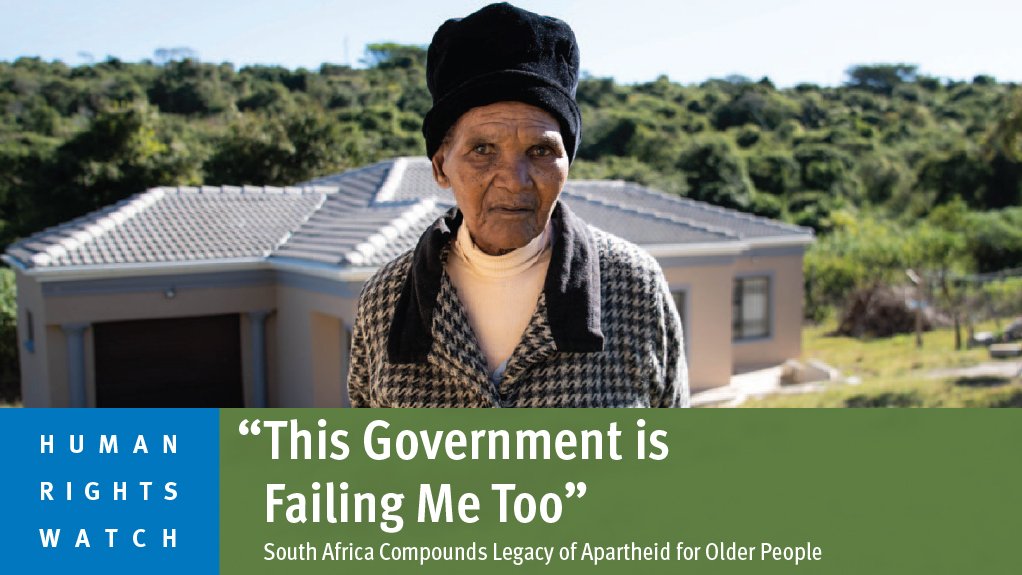- South Africa Compounds Legacy of Apartheid for Older People3.66 MB
Bahija J., 75, has been on the waiting list for State-subsidized housing for 40 years. Her rented house in Cape Town is mouldy and damp, and her landlord has promised her hot water since 1996. She is afraid of dying alone in the house but does not want to end up in an “old age home.”
Bahija spent nearly half a century of her life under an apartheid regime, whose racial segregation policies denied the majority of today’s black African, coloured, and Indian/Asian older South Africans a decent education, decent work, and the ability to save for older age. Many were displaced as children or young people by the apartheid government’s forced removals to segregate people on the grounds of race. The cumulative impact of this racial discrimination when they were younger continues to affect them decades on.
In part to address this legacy of apartheid, the post-apartheid government adopted the 2004 Social Assistance Act, which provides for the Older Persons Grant, a non-contributory social security entitlement for people aged 60 and over, and the Grant-in-Aid for those requiring full-time care and support at home. The post-apartheid government also adopted the 2006 Older Persons Act, which enshrines the rights of older people. The act guarantees them the right to live in an environment that caters to their changing capacities and emphasises community- and home-based care and support services. While the Older Persons Act enshrines the rights of all older people, the vast majority of those who are eligible for government-funded care and support services under the act, the Older Persons Grant, and the Grant-in-Aid, are black African, coloured, and Indian/Asian older people.
Nearly 30 years after the end of apartheid, however, current government policies are undermining the intended remedial impact of the Older Persons Act and are, in fact, compounding apartheid’s legacy. Despite the act’s stated aim, many older people who were displaced during apartheid still do not enjoy their right to live independently and within the community, with hundreds of thousands of older people unable to access the basic care and support services they are entitled to so they can live with dignity in their own homes and communities.
This report documents the experiences of 63 older people across Eastern Cape, Gauteng, and Western Cape provinces. Forty-one were black African, 13 coloured, 3 Indian/Asian, and 6 white. Forty-five were women and 18 were men. Sixty-one received the Older Persons Grant.
Report by the Human Rights Watch
EMAIL THIS ARTICLE SAVE THIS ARTICLE ARTICLE ENQUIRY
To subscribe email subscriptions@creamermedia.co.za or click here
To advertise email advertising@creamermedia.co.za or click here











